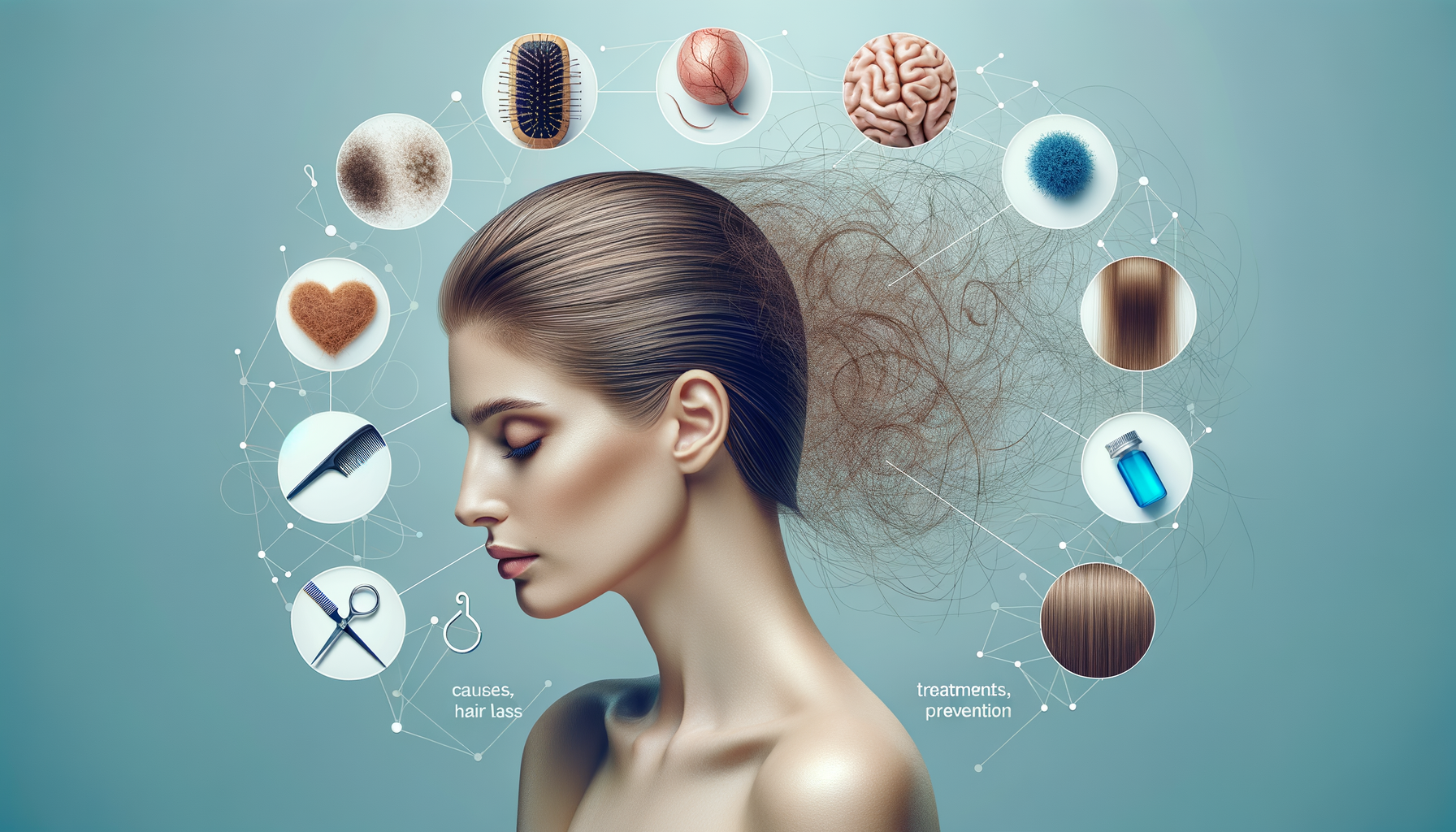Introduction to Hair Loss
Hair loss is a common concern affecting millions of people worldwide, transcending age, gender, and ethnicity. While often perceived as a cosmetic issue, hair loss can significantly impact an individual’s self-esteem and quality of life. Understanding the underlying causes and exploring potential treatments and preventive measures is crucial for managing this condition effectively. In this article, we will delve into the various aspects of hair loss, providing valuable insights and practical advice for those seeking to maintain healthy hair.
Causes of Hair Loss
Hair loss can result from a multitude of factors, each contributing to the thinning or shedding of hair in different ways. One of the most prevalent causes is genetics, where individuals inherit the tendency for hair loss from their family. This type, known as androgenetic alopecia, affects both men and women, though it manifests differently. Hormonal changes, particularly during pregnancy, menopause, or due to thyroid issues, can also lead to hair loss.
Environmental factors play a significant role as well. Stress, whether physical or emotional, can trigger a type of hair loss called telogen effluvium, where hair prematurely enters the resting phase and falls out. Nutritional deficiencies, especially in iron and protein, are known contributors to weakened hair structure and increased shedding. Certain medical conditions, such as alopecia areata, an autoimmune disorder, and scalp infections, can also lead to noticeable hair loss.
Additionally, lifestyle habits such as excessive hairstyling, harsh chemical treatments, and heat exposure can damage hair, leading to breakage and loss. Understanding these causes is the first step in addressing hair loss, as it allows for targeted interventions and lifestyle adjustments.
Treatments for Hair Loss
When it comes to treating hair loss, there are several options available, ranging from over-the-counter products to medical interventions. Topical treatments, such as minoxidil, are widely used and can be effective in promoting hair regrowth and slowing down hair loss. Oral medications, like finasteride, are another option, particularly for men, as they work by inhibiting the hormone responsible for hair follicle shrinkage.
In more severe cases, surgical procedures such as hair transplants or scalp reduction may be considered. These procedures involve the redistribution of hair follicles to balding areas, providing a more permanent solution to hair loss. However, they can be costly and require a skilled surgeon to achieve natural-looking results.
For those seeking non-invasive options, laser therapy has gained popularity. This treatment uses low-level lasers to stimulate hair follicles and promote growth. Additionally, platelet-rich plasma (PRP) therapy, which involves injecting concentrated platelets from the patient’s blood into the scalp, is believed to encourage hair growth by enhancing follicle health.
It’s essential to consult with a healthcare professional to determine the most appropriate treatment based on the specific type and cause of hair loss. A tailored approach ensures the best possible outcomes and minimizes potential side effects.
Diet and Lifestyle Changes for Hair Health
Adopting a healthy lifestyle and balanced diet can significantly impact hair health and potentially reduce hair loss. A diet rich in vitamins and minerals, such as vitamin D, biotin, zinc, and iron, is crucial for maintaining strong and healthy hair. Foods like leafy greens, nuts, seeds, and lean proteins provide these essential nutrients, promoting hair growth and reducing breakage.
Staying hydrated is equally important, as dehydration can lead to dry and brittle hair. Regular physical activity not only boosts overall health but also improves blood circulation, which can enhance nutrient delivery to hair follicles. Managing stress through mindfulness practices, such as meditation and yoga, can also prevent stress-induced hair loss.
Incorporating gentle hair care practices is vital. Opting for mild shampoos, avoiding excessive heat styling, and minimizing the use of harsh chemicals can protect the hair shaft from damage. Regular scalp massages can stimulate blood flow and promote healthier hair growth.
By making these lifestyle adjustments, individuals may not only improve their hair health but also enhance their overall well-being.
Preventive Measures for Hair Loss
Preventing hair loss involves a combination of proactive measures and ongoing care. Regular check-ups with a healthcare provider can help identify underlying health issues that may contribute to hair loss. Early detection and management of conditions like thyroid disorders or nutritional deficiencies can prevent further hair thinning.
Protecting hair from environmental damage is crucial. Wearing hats or scarves in harsh weather conditions and using UV-protective hair products can shield hair from sun damage. Additionally, avoiding tight hairstyles that pull on the hair, such as ponytails or braids, can prevent traction alopecia, a type of hair loss caused by tension on the hair shaft.
For individuals with a family history of hair loss, early intervention with topical treatments or medications may help delay the onset of symptoms. Consulting with a dermatologist or trichologist can provide personalized advice and a tailored prevention plan.
Ultimately, while not all hair loss can be prevented, taking these measures can help maintain hair health and reduce the risk of significant hair thinning.
Conclusion: Embracing Healthy Hair Practices
Hair loss, while a common concern, can be managed through a combination of understanding its causes, exploring treatment options, and adopting preventive measures. By embracing a holistic approach that includes medical treatments, lifestyle changes, and preventive care, individuals can take control of their hair health. It’s essential to remember that hair loss can be a natural part of aging and that seeking support from healthcare professionals can provide guidance and reassurance. With the right strategies, it is possible to maintain a healthy, vibrant mane and boost confidence.




Leave a Reply